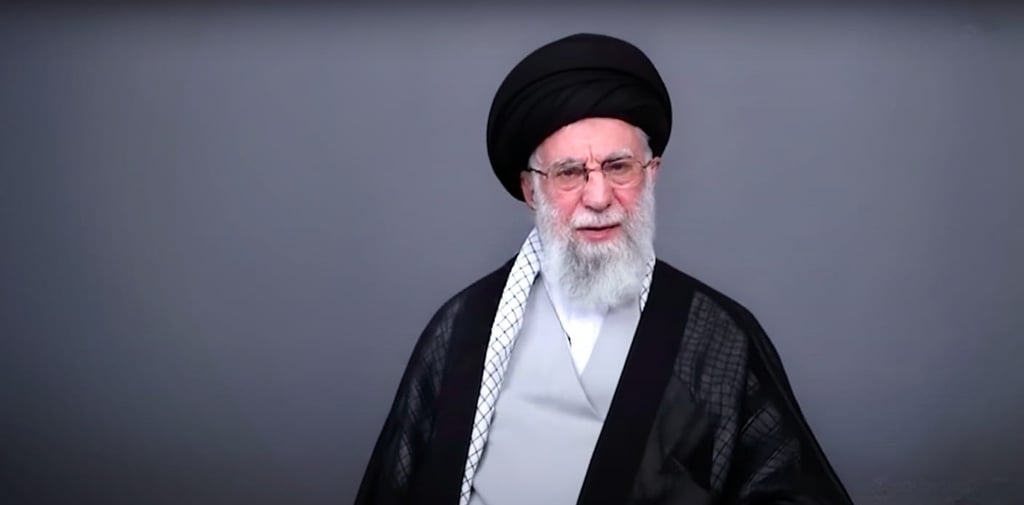Iran’s Khamenei Rejects Trump’s Offer for Talks, Calls It Pressure Not Diplomacy
Iran’s Supreme Leader Khamenei rejects Donald Trump’s offer for talks, calling it coercion disguised as diplomacy amid rising U.S.–Iran tensions.
Raja Awais Ali
10/20/20252 min read


Iran’s Khamenei Rejects Trump’s Offer for Talks, Calls It “Pressure Disguised as Diplomacy”
Tehran (October 20, 2025) — Iran’s Supreme Leader Ayatollah Ali Khamenei has firmly rejected U.S. President Donald Trump’s latest proposal to resume negotiations, saying it represents political coercion rather than genuine diplomacy.
Khamenei stated that Washington’s invitation was not a true offer for peace, but an attempt to pressure Iran into concessions.
“If a deal is made under pressure and threats, it is not negotiation — it is coercion,” he said during a televised address in Tehran, according to Iranian state media.
He also mocked Trump’s earlier remarks in which the U.S. president claimed that his administration had destroyed Iran’s nuclear capabilities through targeted operations.
“If he believes that, then let him keep dreaming,” Khamenei said sarcastically, dismissing the claim as “false propaganda.”
Background
Last week, President Trump told Israeli lawmakers that Washington was ready to strike a new peace deal with Iran “when Tehran is ready.”
However, Iran’s Foreign Ministry responded on October 14, calling the U.S. offer “contradictory” — pointing out that America was extending an olive branch while simultaneously threatening more sanctions and military pressure.
Khamenei’s Position
Khamenei reaffirmed that Iran’s nuclear program is purely for peaceful energy purposes, not for weaponization. He rejected U.S. accusations of secret nuclear development, saying such allegations were politically motivated and intended to undermine Iran’s scientific progress.
“The Americans cannot tolerate an independent Iran,” he said, emphasizing that the U.S. seeks dominance, not dialogue.
Tehran insists that any future talks must be held on equal footing — preferably through neutral mediators such as Russia or the European Union, rather than under unilateral American conditions.
The Broader Picture
Despite Trump’s repeated claims that he seeks peace with Tehran, analysts say the “maximum pressure” campaign — including economic sanctions and regional military threats — has made diplomacy nearly impossible.
Experts warn that unless Washington changes its approach, Iran will continue to resist direct engagement.
Political observers note that Khamenei’s rejection sends a strong signal that Iran will not yield under external pressure. It also reinforces Tehran’s strategy of “strategic patience” — waiting for Western powers to adjust their stance before entering any meaningful negotiation.
Regional and Global Impact
The announcement is expected to heighten tensions across the Middle East, where U.S.–Iran relations remain fragile.
Ongoing disputes over nuclear enrichment, military presence in the Gulf, and influence in Iraq and Syria continue to fuel instability.
In a related development, Russia announced plans to strengthen cooperation with Iran, signaling a shift in regional alliances amid the ongoing U.S.–Iran standoff.
Conclusion
As of October 20, 2025, Iran has made it clear that the door to talks is not entirely closed — but Tehran will not accept any negotiation dictated by Washington.
Khamenei’s latest remarks underline Iran’s position: dialogue must be based on equality, respect, and sovereignty — not intimidation or pressure.
This development marks another turning point in U.S.–Iran relations, potentially shaping the future of global nuclear diplomacy and Middle Eastern stability.
Stay informed with the latest national and international news.
© 2025. All rights reserved.